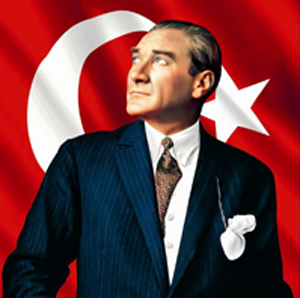

The 4th International Communication in the Digital Age Symposium (CIDA 2024), organized by the Communication Research Association (İLAD) and the Communication Faculties’ Deans Council (İLDEK) and hosted by Eastern Mediterranean University (EMU) from November 28–30, 2024, included a special panel in memory of journalist, author, and İLAD founder and honorary president Hıfzı Topuz.
The panel, titled “In Memory of Hıfzı Topuz: International Communication Order and Cypriot Turkish Media,” featured prominent speakers such as Fehmi Gürdallı, Director of the Turkish Agency Cyprus (TAK); journalists Ali Baturay and Cenk Mutluyakalı; and Near East University academics Assoc. Prof. Dr. Ayça Demet Atay and Assist. Prof. Dr. İbrahim Özejder. İLAD General Secretary Füsun Özbilgen served as the panel moderator.
In her opening remarks, Özbilgen highlighted the contributions of Hıfzı Topuz, who passed away in 2023, to international journalism education. She emphasized his pioneering efforts under UNESCO in training journalists and establishing ethical standards across regions from Sub-Saharan Africa to Asia and the Middle East. Özbilgen also noted Topuz’s role in the establishment of Ankara’s Press and Broadcasting School with UNESCO support, which later laid the foundation for communication faculties in Turkey.
Assoc. Prof. Dr. Ayça Demet Atay elaborated on Topuz’s advocacy for democratizing the international communication order, describing his efforts to end colonialism in global news dissemination. Referencing UNESCO’s “Many Voices, One World” report, prepared by the MacBride Commission, Atay recounted Topuz’s reflections as captured in the documentary *On Communication with Hıfzı Topuz*. She stated, “The report criticized the Western dominance in global information flow and called for reforms to create a more equitable communication system. Countries like the U.S. and the UK, fearing a loss of control, opposed the report and attempted to undermine UNESCO. Nevertheless, the report’s adoption at UNESCO’s 21st General Conference marked a turning point, inspiring constitutional recognition of communication rights in various nations. Despite these advancements, inequalities in global communication persist, with major news agencies continuing to dominate.”
Cypriot Turkish media representatives at the panel criticized the insular nature of local media. TAK Director Fehmi Gürdallı noted, “Cypriots believe they are at the center of the world, but Cyprus receives little coverage in the global press, and international news is scarce in Cypriot media.” He also critiqued journalism education in the region, citing a lack of engagement and awareness among students and emphasizing the need to cultivate global citizens.
Veteran journalist Ali Baturay pointed out that the Cypriot Turkish media has ceased subscriptions to international news agencies like Agence France Presse (AFP) and Reuters due to high costs. “Many outlets no longer subscribe even to Anadolu Agency or İHA, relying instead on content borrowed from elsewhere,” he said, adding that local readers show limited interest in international news.
Columnist Cenk Mutluyakalı echoed these concerns, describing the Cypriot Turkish community’s isolation since 1963. “Our society has been excluded from the international community, creating a self-contained structure. Overcoming this requires state policies that orient the public toward the world,” he argued.
Assist. Prof. Dr. İbrahim Özejder closed the panel by addressing the current dominance of digital giants such as Google, Meta, X, Microsoft, Apple, and Amazon in global information flow. These corporations, he argued, use algorithms, censorship, and visibility reduction to control narratives and stifle independent journalism, particularly in conflicts like Ukraine and Palestine. Highlighting the principles of peace, democracy, pluralism, and human rights central to Topuz’s journalism philosophy, Özejder emphasized the need to fight for global press freedom despite challenges.
In his concluding remarks, Özejder urged participants to draw inspiration from Hıfzı Topuz’s legacy and continue striving for an equitable international communication order.

